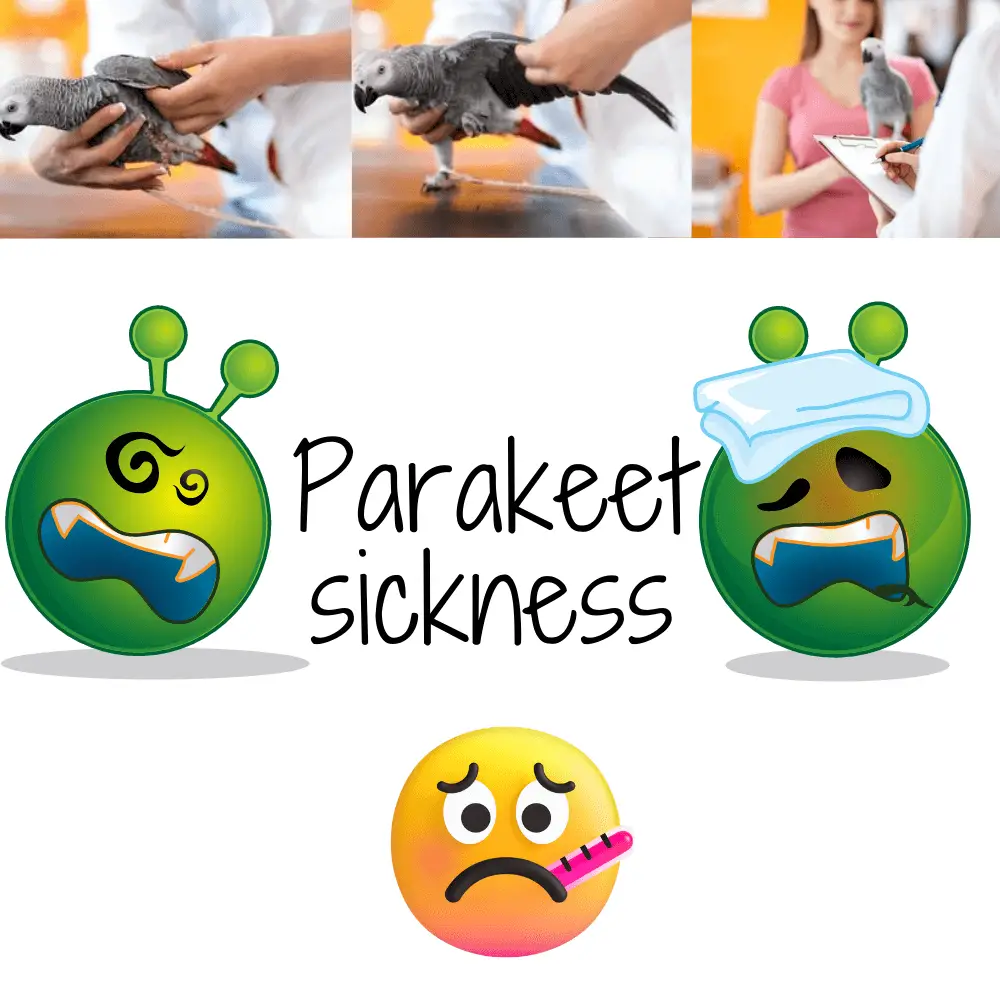
How to detect signs of disease in parrots and Parakeet sickness: A pet parrot can live up to twenty-five years, but even a healthy bird can feel under the weather from time to time. Since parrots may not show any signs of illness, it is good to be aware of the subtle symptoms that a bird may have. Ruffled feathers, discharge, swelling, lethargy, and unusual noises can all be signs of illness. However, if your parrot shows signs of blood, vomiting, or seizures, you may need to seek emergency care.
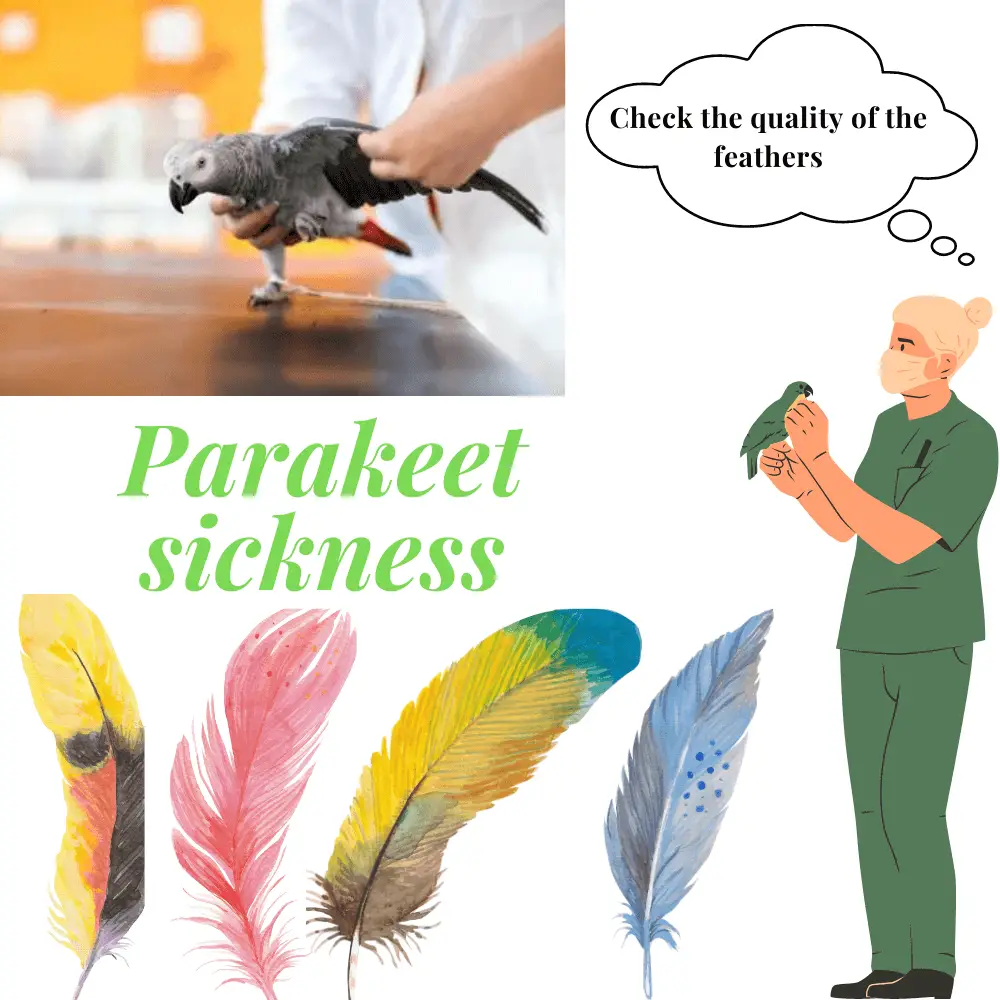
Check the quality of the parrot feathers
Ruffled, thin, uneven, or dull feathers can be a sign that something is wrong. A disease or parasite can cause the feathers to fall off or the bird may tear them off due to stress.
- If they live alone and pick their feathers, they can be alone, not sick! You should always take your parrot to the vet, but remember to find him a companion.
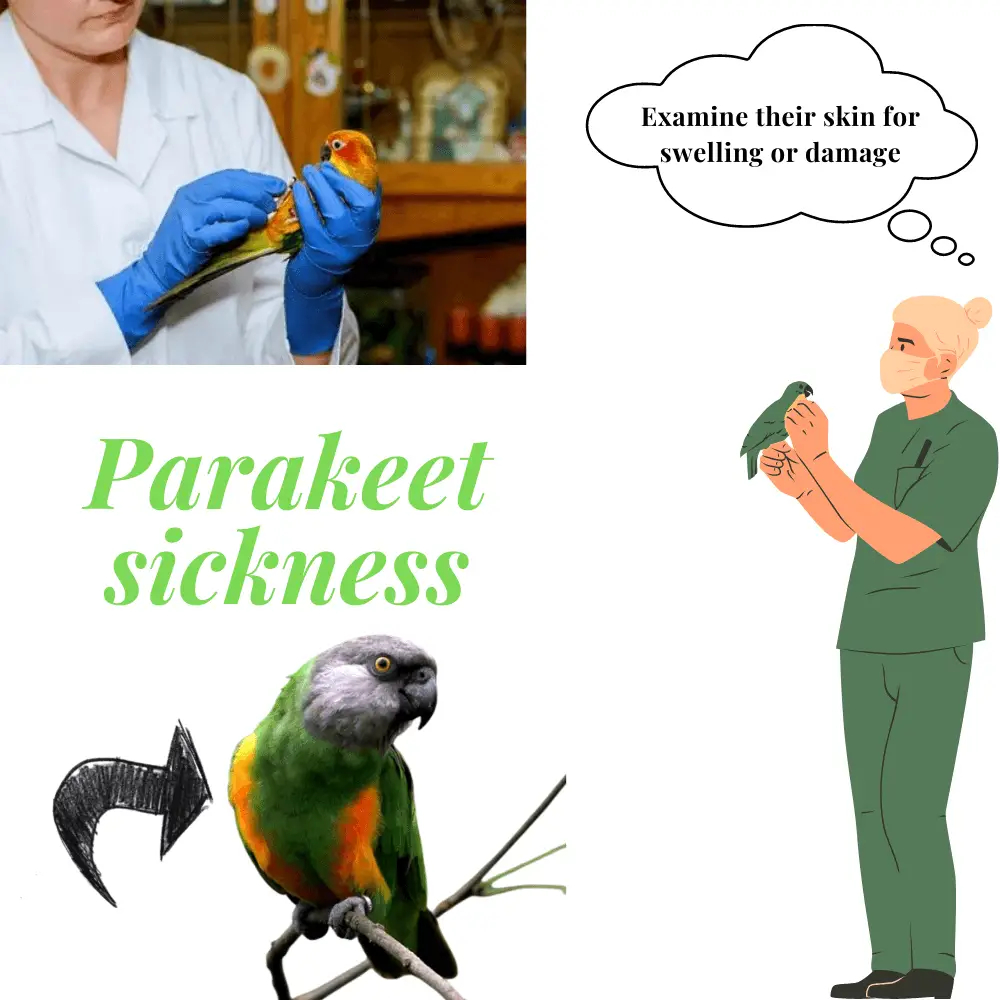
Examine parrot skin for swelling or damage
Check your parrot’s skin for any signs of crusts, crusts, rashes, or peeling skin. You may have to spread their feathers apart to see. Swelling around the eyes, feet, vent, and beak can also be a sign of a problem.
- Squinting eyes can mean that their eyes are sore or swollen. This can be caused by many diseases, including parrot fever. Parrot fever is very serious and can be transmitted to humans. Consult a veterinarian immediately. To avoid getting it yourself, wear gloves and a face mask when cleaning the cage.
- If it seems that the area around their eyes is wrinkled, they may be suffering from dehydration.
Look for any discharges
Discharge around the nostrils is Parakeet sickness (nostrils on the beak), eyes, or mouth can be a sign of many different conditions. This discharge can be a transparent film or have distinct coloration, such as white or yellow.
- Clear watery discharge from the nostrils may be normal, but not watery eyes.
Find tangled feathers on the chest or slit
Listen to rapid or labored breathing.
If your parrot sounds like it’s wheezing or breathing very quickly, it may have a breathing problem and mean Parakeet sickness. It can be a simple cold or something more serious.
- If the parrot breathes quickly and holds its wings out of its body, it may have overheated. Refresh the room and give them fresh water.
Watch for excessive sleep or laziness
A sick parrot will often become lethargic. They can take long naps during the day. If they are awake, they can rest on their perch or at the bottom of their cage instead of playing or flying.
- A normal parrot is alert and interacts with its environment. If your parrot looks lethargic, unaltered, and does not interact with other birds, it may be Parakeet sickness.
- A sick or lethargic parrot may appear hunched, trembling, or swollen.
- Swollen feathers are normal when the parrot is asleep, but if it swells while awake, it may feel sick.
Measure how much they eat
-
Any change in eating or drinking habits can signal a problem. Check their cage for any uncracked seed or unconsumed pellets. This could mean that the parrot does not eat. Often empty bowls of water or food may indicate that they are eating more than usual.
- Drinking more water than usual can be a sign of dehydration.
- Eating more than normal may indicate that they are having trouble digesting their food. This could be caused by avian gastric yeast or macaw dieback disease.
- If your parrot abruptly stops eating or drinking, this is a serious sign that something is wrong and the bird could be very sick.
Parrot sickness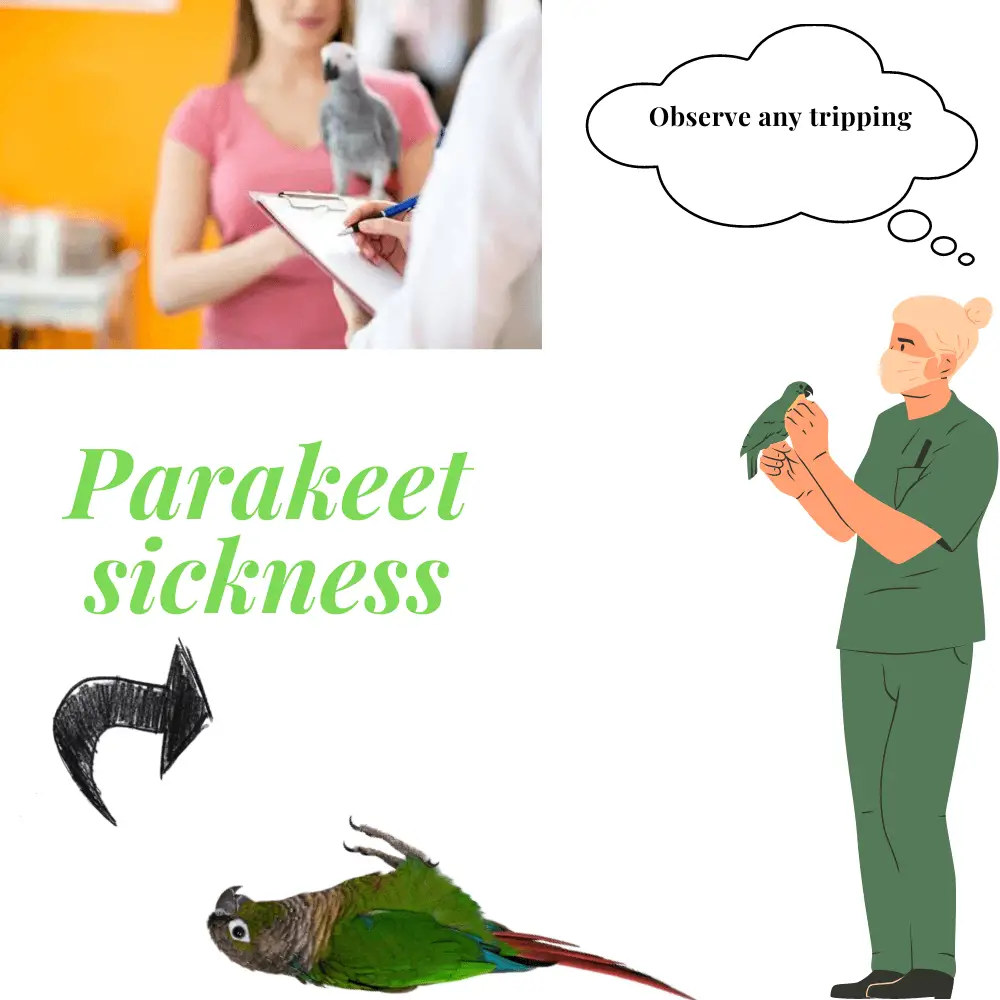
Take note of any unusual screaming or silence
Some chipping is normal for parrots, but if they scream more than usual, they may be trying to tell you something. Similarly, if the parrot is extremely quiet, it may not feel well.
Changes in the vocalization of parrots can be very difficult to detect. Nevertheless, if you notice any changes, keep a close eye on the bird for other signs.
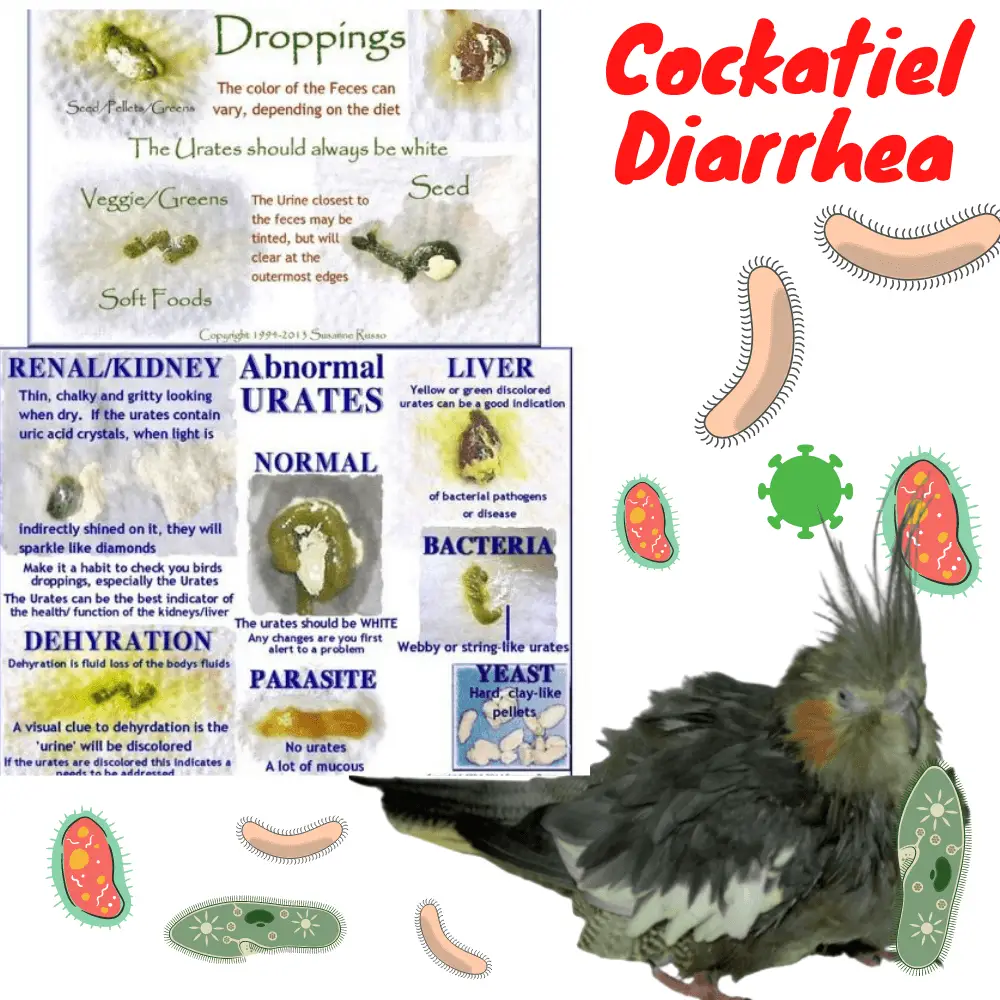
Examine their feces
Your parrot’s feces can tell you how they feel. Normal feces should have dark brown feces with white tips. Any yellow, green, red, or black discoloration should be checked by a veterinarian.
-
- Red and black feces are a sign of internal bleeding. Call your veterinarian immediately.
- If there is undigested food in their feces, they may have internal parasites.
- If their feces are green, it may indicate that they are not eating.
- Changes in the frequency or amount of feces can also be a sign of illness.
Take your bird to an avian veterinarian
For birds like parrots, many diseases and conditions share the same symptoms. An avian veterinarian will be able to diagnose the exact condition of your parrot by performing X-rays, blood tests, fecal tests, culture washes, and other tests.
- Try to find a veterinarian who has worked with birds before. Experienced veterinarians will be more familiar with diseases and problems that affect birds and can save you time, money, and stress.
Call your veterinarian if you find blood
If you find traces of blood in the feathers, beak, orifices, or feces, call your veterinarian immediately. These can be caused by injury, parasites, or serious illness.
- Call the vet in advance in case of emergency if you can and let him know that you are coming. Ask what you need to do to help the bird during this time as well, while you are going to the clinic.
Put the parrot in an empty cage if they have a seizure.
Take fecal samples if they vomit or regurgitate food
Vomiting can be dangerous for parrots. Your veterinarian may need to test his feces to see if he has a digestive problem. Scrape some of their feces in a plastic bag and take it with you to the vet so the vet can test it.
- Wear gloves and a surgical mask when collecting these samples to avoid getting an infection yourself. Always wash your hands after handling bird droppings.
- Label the bag with your name, the name of the bird, and the date you took the sample. This will help your veterinarian process the sample.
- Some possible conditions that may be the cause include candidiasis or avian gastric yeast.
Symptoms of a sick bird and what to do before going to your avian vet
SOURCE:Love of Pets



















